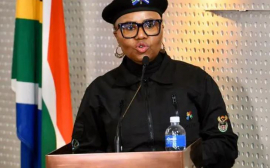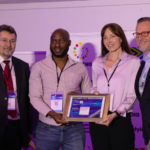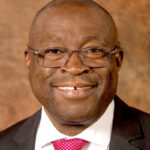As essential contributors to the economy, women must be empowered to participate more meaningfully in business and have more access to markets.
This according to Social Development Minister, Lindiwe Zulu, and her Small Business Development counterpart, Minister Stella Ndabeni-Abrahams.
The two Ministers were engaged in a panel discussion at the second Women Economic Assembly (WECONA) in Pretoria on Wednesday.
The assembly – which was first held last year – is a direct response to one of the pillars of the National Strategic Plan (NSP) on Gender Based Violence and Femicide, which calls for women’s economic empowerment.
Zulu told the assembly that although women face many challenges, including the scourge of gender-based violence and femicide (GBVF), the economy remains a vital part of ensuring their well-being.
“Many times we talk about all other issues and forget to talk about the economy. The economy belongs to us too and therefore it is important for us to see the opportunities in the economy among ourselves.
“It is about us using the budget and whatever we can, not for ourselves but [for the vulnerable], and to make sure that through small and medium enterprises, [women are empowered],” she said.
Zulu said the department is hard at work to find solutions to women’s issues beyond their core business of disbursing social grants.
“One thing that we have done as a department was to say let us not look at ourselves as a department [only] paying social grants. We are more than that. We are also about developing policies that are enabling.”
The Minister said when they received funds from the Chinese government — for food parcels — after the July 2021 unrest in KwaZulu-Natal and Gauteng, they had a vision to utilise the money in a manner that would have a lasting social impact.
“We said as a department… ‘will you allow us to go and find the women who lost their livelihoods at the time because their things were taken away’. They were selling [goods] on the streets.
“We then decided to work with the Department of Small Business Development to [make it possible for] women who lost their livelihoods at the time… to [get] vouchers to buy the things they were selling already,” Zulu said.
Ndabeni-Abrahams reflected that the department – in aiming to assist women to grow their businesses – realised that their task is “a huge one”.
“We are responsible for promoting and developing small businesses, and at the centre of that is creating an enabling environment and it is not only policy related. It goes with… access to financing and access to the market. Many women businesses are lagging behind.
“As things stand, women only contribute 6% globally to trade exports. Here at home, government spends about 1% of its own procurement [on women businesses]. We have a government that is pro-women. We have a government that has to deal with unemployment but grow the economy at the same time.”
She implored women-led business to collaborate with government for the “effective execution of all the great policies” implemented by government.
“We are enhancing our business development support. We are merging SEDA (Small Enterprise Development Agency), SEFA (Small Enterprise Finance Agency) and the Cooperative Business Development Agency. It’s high time we create a one-stop shop for small businesses.
“But… it will not achieve what we want to achieve if we don’t play by the rules of the game by putting those who are beneficiaries at the centre of it. Without that collaboration and coordination, [policies] are not going to take us anywhere.
“As a department… as we are looking at enhancing our efforts towards empowering entrepreneurs. We need women at the centre of it and we will walk this walk with [women],” she said.












